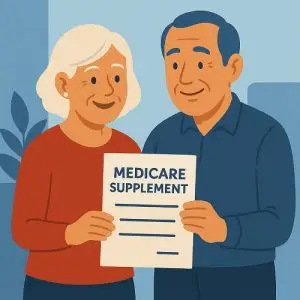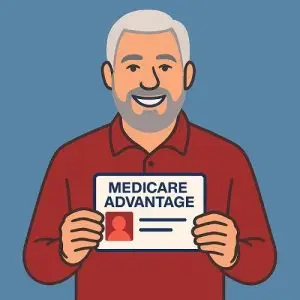
Medicare Part D - Drug Plans
A Medicare Drug Plan, also called Part D, helps pay for the medicines your doctor prescribes. These plans are offered by private insurance companies. You can buy a drug plan as a stand-alone plan if you have Original Medicare with or without a Medicare Supplement. You can also get drug coverage inside a Medicare Advantage plan, where it is already included with your hospital and medical coverage. Having a drug plan is important because it helps lower the cost of the medicines you need.
When You Can Enroll or Change Drug Plans
You can only sign up for or change your Medicare Drug Plan during certain times each year. If you have a stand-alone drug plan with Original Medicare, you can join, switch, or drop it during the Annual Enrollment Period, which is October 15 through December 7, and your change starts January 1. If your drug coverage is part of a Medicare Advantage plan, you can also make changes during the Medicare Advantage Open Enrollment Period, which is January 1 through March 31. This means you can switch to a different Medicare Advantage plan or go back to Original Medicare with a stand-alone drug plan.
How Medicare Drug Plans Work
Medicare Drug Plans, called Part D, help pay for the medicines your doctor prescribes you. Each plan has a formulary, which is the list of drugs it covers. Drugs are put into groups called tiers—some cost less, and some cost more. The pharmacy you choose also matters. Many plans have preferred pharmacies where your medicine will cost less compared to standard pharmacies.
Drug plans usually have 3 main phases during the year:
Deductible Phase – You may have to pay the full cost of your medicines until you meet the plan’s deductible.
Initial Coverage Phase – After the deductible, the plan helps pay for your medicines, and you pay your share (like a copay or coinsurance).
Catastrophic Coverage Phase – If your drug costs reach the maximum out-of-pocket limit ($2,000 in 2025), then your costs go to zero for the rest of the year.
Medicare Prescription Payment Plan (M3P)
Starting in 2025, Medicare introduced a new optional program called the Medicare Prescription Payment Plan (M3P). This lets you spread out the cost of your medicines over the year instead of paying large amounts all at once. For example, if you need an expensive drug, you could pay smaller monthly payments instead of the whole cost at the pharmacy counter.
But this program is not right for everyone. You will still have to pay the full cost of your medicines associated with the Part D plan you’re enrolled in—just spread out over time. For some people, this may feel easier to manage. For others, it may be confusing, or it may not save money if they don’t use many expensive medicines. It is important to look at your own needs and talk to a Medicare expert before signing up.
Extra Help (Low Income Subsidy)
Extra Help is a special program for people with low income and limited resources. It helps pay for the costs of a Medicare Drug Plan (Part D). With Extra Help, you may pay little or nothing for your monthly premium, yearly deductible, and the cost of your medicines. This can save people thousands of dollars each year.
If your income and savings are below certain limits, you may qualify. Extra Help makes sure you can still get the medicine you need without worrying about high costs.
Avoid the Part D Late Enrollment Penalty
Medicare wants everyone to have drug coverage, so if you wait too long to sign up for a Part D Drug Plan (and don’t have other good drug coverage that is considered “creditable”), you may have to pay a penalty. This penalty is an extra cost added to your monthly premium, and you pay it for as long as you have Medicare Part D coverage. The longer you go without drug coverage, the bigger the penalty gets. This is why it’s smart to sign up for a drug plan when you’re first eligible, even if you don’t take any medicines right now.

Unless you are retiring with employer coverage, you have two main choices for Medicare: a Medicare Supplement plus a Drug Plan or a Medicare Advantage Plan.


